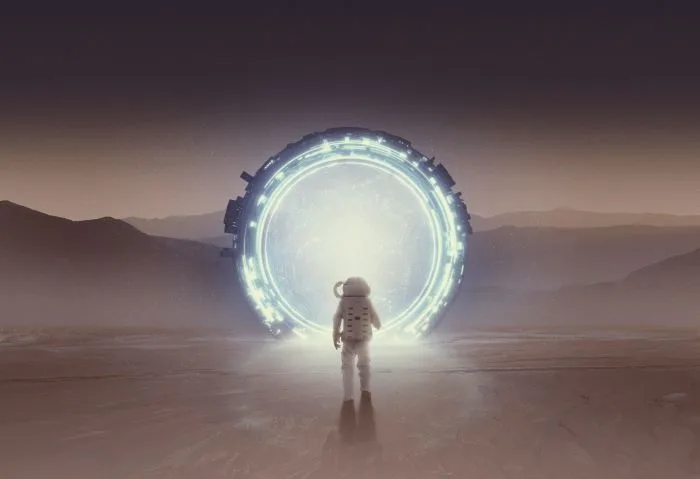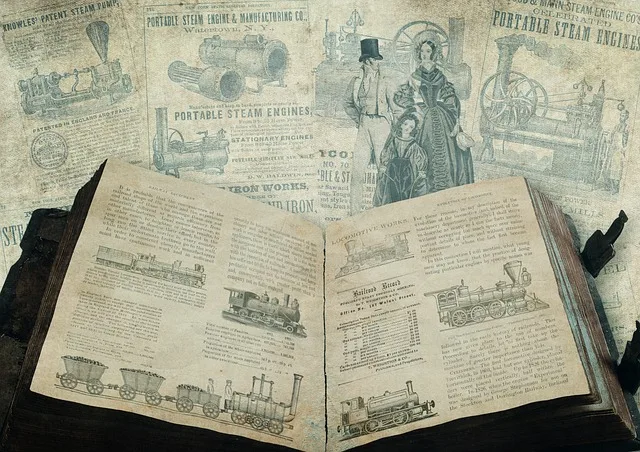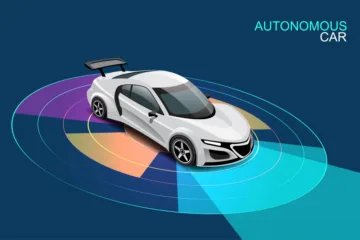Time traveling has become a matter of curiosity for decades. From H. G. Wells to Jules Verne, science-fiction authors have explored the concept in their works and imagined how it might be possible to go back in time or into the future. The laws of time travel are still largely unknown, but several theories suggest that this phenomenon may be achievable through quantum physics and other means. This article will explore some of these time travel theories and discuss their current status.
What is Time Travel and How Does it Work?
Time Traveling is the concept of traveling through time, either forward or backward. It has been explored in popular science fiction stories and movies to explore alternate timelines and events that could have happened in the past or may appear in the future. While time travel may seem impossible, some scientists think using wormholes, black holes, and other methods is theoretically possible. Time Traveling could open up new possibilities for humanity and allow us to explore different eras throughout history.

What are Different Methods & Technologies To Make Time Travel Possible
Time travel has been the subject of science fiction for many years, but scientists and physicists are continuously researching and testing various methods to make it a reality. Here, we will explore some of the technologies that have been proposed or are currently being researched.
- Time Dilation
One of the most well-known methods of time travel is time dilation, which is based on Einstein’s theory of relativity. Time dilation occurs when an object travels at speeds near the speed of light. As an object approaches the speed of light, time for the object will slow down relative to stationary observers.
This means that time will pass more slowly for a person in a high-speed spaceship compared to an observer on Earth. If the spaceships were to travel at speeds close to the speed of light for a significant amount of time, they would return to Earth in the future. This method of time travel is purely theoretical, as there is currently no technology that can achieve these speeds.
- Wormholes
A wormhole is a theoretical design that links two points in time and space. It is suggested that if we were to find or create a wormhole, we could travel through it and arrive at the other end at a different time.
Theoretically, wormholes could allow for travel backward and forward in time. However, the problem with this method is that wormholes have never been observed, and there is currently no technology that could generate a wormhole.

- Cosmic Strings
Cosmic strings are hypothetical one-dimensional objects that are believed to exist throughout the universe. These objects are thought to be extremely dense, and their gravitational fields are so strong that they can warp space-time.
It is proposed that if cosmic strings were to exist, we could use them to time travel. We could theoretically warp space-time to create a time loop by approaching a cosmic string. However, as with wormholes, such technology doesn’t exists that can generate cosmic strings or approach them.
If you want to learn about cosmic facts, read our article on space facts that stunned the world.
- Black Holes
Black holes are bodies that cannot emit radiation or light and hence are considered impenetrable. They are formed when a massive star collapses under its gravity and creates a singularity, where the laws of physics as we know them break down.
If we could approach a black hole, we could use its extreme gravitational pull and time-dilation effects to travel through time. However, black holes are dangerous, and getting too close could lead to the destruction of the spaceship as well as its passengers.

Refer to our article 6 terrific explorations by Stephen Hawking to learn about the anatomy of the black hole.
- Quantum Entanglement
Quantum entanglement is a phenomenon whereby two particles become connected in such a manner that their states become correlated. This means that if we change the state of one particle, the other particle’s state will change simultaneously, regardless of distance.
Using quantum entanglement, we could create a quantum time machine. If we were able to entangle two particles and send one of them away, the other particle’s state would change instantly, even if it was thousands of miles away. This could allow us to send information back in time. However, this method is also purely theoretical, and currently, no technology is available to use quantum entanglement in this way.

- Tipler Cylinder
The Tipler Cylinder is a hypothetical object proposed by physicist Frank Tipler in 1974. It is a rotating cylinder that is infinitely long and contains exotic matter. This matter is necessary for the cylinder to exist as it must have a negative mass. The Tipler Cylinder is considered to be able to generate a time loop, which would allow for time travel. However, this technique is also purely theoretical.
In conclusion, while different methods and technologies for time travel have been suggested, they all remain theoretical, and there is currently no viable technology available that can make time travel a reality. Scientists and physicists continue to research and investigate these methods, but the challenges and obstacles are significant, and it may be many years or even centuries until time travel becomes a reality.
5 Amazing Possibilities That Could Come From Time Travel
While time travel is still a theoretical concept, its potential benefits and ramifications have been the subject of much speculation and discussion. Here are five amazing possibilities that could come from time travel:
- Learning about historical events
Time travel would allow historians, archaeologists, and even regular people to go back in time and witness historical events firsthand. This would enable individuals to gain a better understanding of the past and observe events that are otherwise impossible to experience, such as the formation of the universe, the birth of humanity, the great wars, and cultural or social events that shaped the world.

- Changing the course of history
If time travel becomes a reality, it would be possible to go back in time and change the course of history. For instance, if an individual wants to avoid a significant event or tragedy, time travel could enable them to go back and make changes to prevent such an occurrence. However, this raises ethical questions and could disrupt the course of nature and evolution.
- Solving mysteries
Many mysteries and puzzles have eluded humans for centuries, including the fate of missing people, historical conspiracies, and scientific phenomena. Time travel would offer the opportunity to go back and solve those mysteries using modern knowledge and cutting-edge technology.

- Meeting famous or significant people
Time travel would allow people to meet famous or significant individuals from history, such as Albert Einstein, Leonardo da Vinci, or even relatives who passed away before we were born. This would provide an opportunity to learn from the great minds of the past and interact with people who shaped our world.
- Alternative realities
Finally, time travel could theoretically lead to the creation of alternative realities or timelines. It could create new branches of reality where different outcomes occurred, and life took a distinct course. This could open up endless possibilities for exploring alternative realities and offer educational and philosophical opportunities.

In conclusion, while the idea of time travel may seem like science fiction, the potential possibilities that it holds are fascinating and could lead to breakthroughs in science, history, and human understanding.
While the idea of time travel may seem alluring, it is essential to weigh its potential benefits and drawbacks. Here are some of the Pros and Cons of time travel and its potential impact on society.
Pros
- Advancement in Science and Technology: Time travel research could lead to many significant scientific advancements, leading to innovations in fields like physics, engineering, and aerospace technology.
- Historical and Museums Research: Time travel could provide researchers with the opportunity to study past cultures, architecture, and literature to better understand the aspects of ancient history.
- Alternative Realities: Time travel allows for the exploration of alternate universes, offering the chance to explore and understand different possibilities.
- Prevention of Major Disasters: If time travel became a reality, changing the past could prevent earthquakes, fires, wars, and significant accidents, thereby avoiding the loss of human life.
Cons
- Butterfly Effect: The butterfly effect states that small actions or decisions made in the past could cause significant changes, leading to possible catastrophic outcomes in the present or future.
- Ethical and Moral Implications: The ability to alter historical events could have severe ethical and moral repercussions, leading to unintended consequences that are disadvantageous to society.
- Cultural and Social Conflicts: Time travel could result in significant differences in cultural and societal norms, leading to possible conflicts between different eras and social classes.
- Damage to the Space-Time Continuum: The effects of time travel may negatively affect the timeline, which could lead to significant issues such as loss of information, potential damage to the space-time continuum, and irreparable damage to past events.
- Creation of Paradoxes: Time travel can result in creating paradoxes, such as individuals meeting themselves in the past, leading to confusion and chaos.
Impact on Society
If time travel became a reality, it would fundamentally change how individuals experience and interact with time. It could lead to new ideas and ways of perception, allowing for a better understanding of our past and future. However, it may also lead to conflicts, ethical and moral dilemmas, and the possibility of altering the course of history, leading to potentially catastrophic outcomes.
The impact of time travel on society is complex and multifaceted. While the potential benefits are significant, the probable drawbacks and unintended consequences cannot be overlooked. The development of time travel would require thorough ethical considerations, research, and caution to ensure that the positive impact outweighs the negatives.


